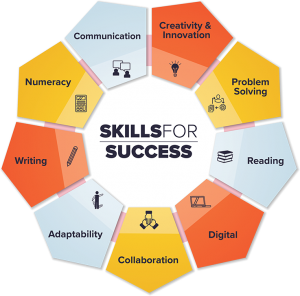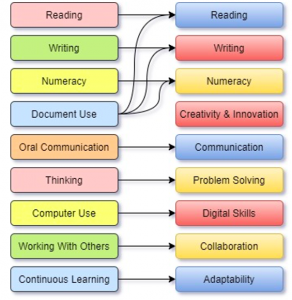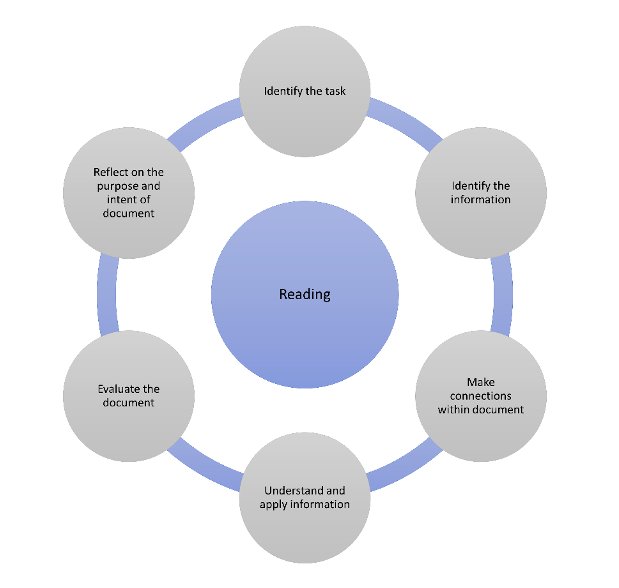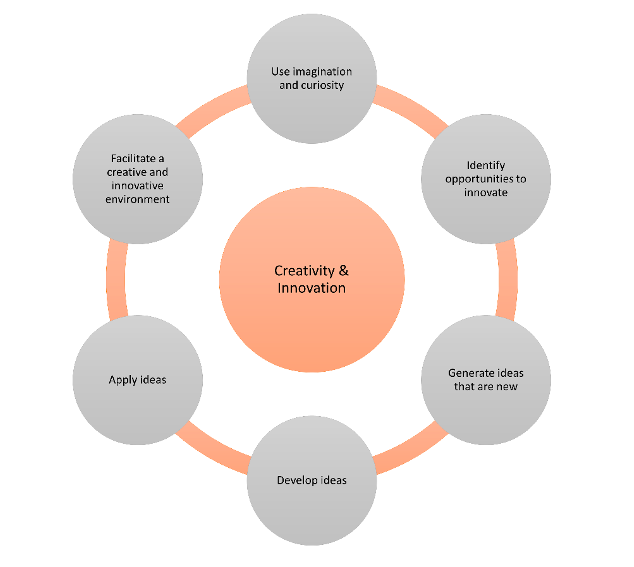Skills frameworks are not static. They are updated with new research or when the creators of the framework are trying to move in a new direction.
Employment and Social Development Canada (ESDC) has been looking at ways of improving the Essential Skills Framework for years. In 2018, national stakeholder engagements were led by Futureworx, and since then the government-supported Future Skills Centre funded more projects around skills development. With all of this going on, as well as the new frameworks piloted internationally by OECD, UNESCO and NACE, it’s no surprise that the time was right for the Essential Skills Framework (ESF) to be refreshed
The ESF has now been replaced by the Skills for Success (SFS) framework. A research report published by SRDC (the Social Research and Development Corporation) lays out the reasons and work behind the new framework. It explains that the framework needed to be modernized due to the effects of automation on the types of tasks workers are doing. The previous framework also didn’t connect with the social-emotional skills that ESDC has identified as important and which can’t be automated. Workers will need these skills as Canada adapts to a labour market where employees progress through their career by moving between organizations rather than advancing within a single one.
Figure 1: Skills for Success (2021)
What’s the purpose of it?
As with all skills frameworks, the purpose of the SFS is to propose a common language. With federal government support, it will very quickly be adopted by other government departments as well as different levels of government and much of the public sector. Uptake by employers, educators, jobseekers and others may take longer. The previous framework spent decades being integrated into many places and so it will likely take some time for everyone who was using ESF to switch to SFS.
The skills that were chosen for the SFS were picked because they were:
- Work focused and transferable
- Durable or enduring
- Assessable
- Teachable/learnable
- Broadly recognized
- Flexible and inclusive
Instead of creating a completely new framework, the government has innovated on the ESF. This will give career development professionals a new tool in their toolbox that still feels familiar.
Read more: Comparing essential skills frameworks as a tool for career development
What’s the same, what’s new?
The previous framework had nine skills, and the new one maintains that number (as you can see in Figure 2). The changes are mostly under the hood in the components that make up each of the new skills. The first major change is the merging of Document Use into Reading, Writing and Numeracy. The SFS also adds a fully new skill, Creativity & Innovation, covering much that was missing from the previous framework. The other five skills have been transformed into much broader skills. For instance, Continuous Learning has become a component of the new skill Adaptability. The framework also introduces new proficiency levels of entry, intermediate and advanced (with more levels for Reading, Writing and Numeracy).
Figure 2: Comparison of ESF to SFS
Each skill is broken down into six components. The components for most follow a format where they include some form of identify, understand, plan, act, and reflect. For example, here are two of the skills and their components: Reading, and Creativity & Innovation.
What’s great about it?
The team for this project was able to strike a good balance between adding important social-emotional skills and maintaining consistency with the old framework. The new and revised skills and competencies provide better alignment with other modern skills frameworks and will likely result in some strong skills-focused research in Canada. Many of the UNESCO Transversal Competencies around interpersonal skills, media & information literacy, and critical & innovative thinking align with Skills for Success, and the skills of collaboration, adaptability, and creativity & innovation cover most of the OECD’s Big Five Domains framework.
The addition of proficiency levels is especially helpful as it will make intentional teaching of and assessing skills easier. This will also provide a new tool to decrease bias in the hiring process as employers can focus more on specific skills and abilities and less on a nebulous “fit.” At the release event, Dr. Wendy Cukier, Founder of Ryerson University’s Diversity Institute, talked about how people who are historically underrepresented in the workforce don’t have a skills gap; rather, their skills aren’t being properly evaluated by employers who rely too much on fit. There is a lot of potential for employers to better hire qualified diverse people by using SFS.
What could use work?
The major issue in the new framework isn’t what is there, but what is not. It doesn’t touch on some of the core skills in the Transversal Competencies that are reflected in the other major frameworks. It’s missing skills around empathy, compassion, intrapersonal skills (like self-awareness), ethics, integrity, global citizenship and intercultural understanding.
The most glaring of these is the lack of focus on intercultural understanding. This has been relegated to one of the six components of Collaboration: “Value diversity and inclusion.” In the other major frameworks discussed in a previous CareerWise article, this was one of the main skills, competencies or domains.
What does it mean for me?
Just like the previous Essential Skills Framework, Skills for Success will be used heavily by everything connected to ESDC. That means that, though they haven’t updated them yet, we can expect that the JobBank and the National Occupational Classification (NOC) Skills and Competencies Taxonomy will implement it as well. They are likely to be connected to most calls for proposals in the next few years. Being able to use the new shared language that is being proposed will be essential for any career development professionals whose work is connected to government funding. In the longer term, because of the reach and penetration of ESDC’s projects, the SFS will become part of the standardized language used by provincial and municipal governments as well.
The new framework is much closer to a career development framework than it is to a comprehensive framework, with career development skills embedded into the Adaptability skill. This means that, if you’re trying to help clients or students understand, evaluate and categorize their past experiences, the SFS framework will support your practice. It will be of great interest as well to those trying to explicitly tie skills development into their curriculum as it provides multiple components at different competency levels.
Whichever your reason for using it, one thing is certain, this new framework will be everywhere in the Canadian context within a few short years.










